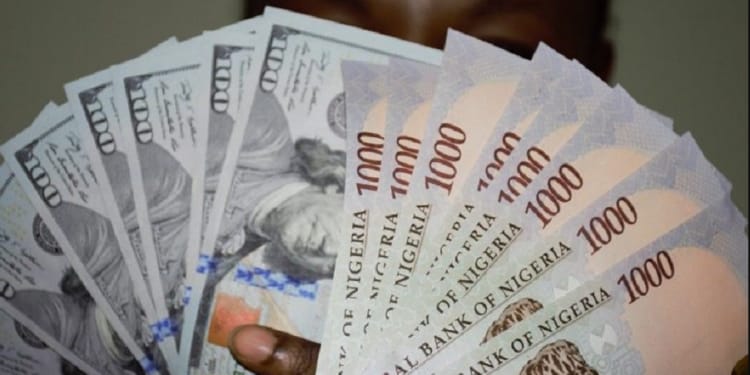9am News report that the naira recorded a modest gain against the US dollar across official and parallel foreign exchange markets on Tuesday, the first trading day of July 2025, as Nigeria’s ongoing foreign exchange reforms continue to support relative currency stability.
According to the Central Bank of Nigeria (CBN), the naira appreciated marginally at the Nigerian Foreign Exchange Market (NFEM), closing at N1,529.57 per dollar, compared to N1,529.71 on Monday, reflecting a gain of N0.14.
In the parallel market, the naira also strengthened, appreciating by N10 to close at N1,560 per dollar, marking a 0.6 percent increase from the previous day’s N1,570.
9am News report that last week, the FX market received a boost in dollar liquidity driven by higher inflows from Foreign Portfolio Investors (FPIs) and stronger participation on the sell side. Access Bank’s weekly FX report noted that these inflows helped the naira gain N6.43, closing the week at N1,545.20 per dollar.
Access Bank analysts expect that sustained FPI inflows could maintain downward pressure on exchange rates if the current momentum continues.
However, despite recent signs of relief, the naira remains Africa’s worst-performing currency over the past year. According to data compiled by Afreximbank and other sources, the naira weakened by 131.8 percent from N636.13 per dollar in 2023 to N1,474.60 in 2024, following the CBN’s push to unify exchange rates and attract foreign inflows amid persistent FX shortages and double-digit inflation.
9am News report that Nigeria’s currency woes place it ahead of South Sudan and Zimbabwe, which also posted steep depreciations in 2024. The South Sudanese pound fell by 131.1 percent, driven by fiscal instability and conflict-related disruptions that affected oil revenues the country’s key foreign exchange source.
Zimbabwe’s currency weakened by 55.6 percent last year, on top of an 835.9 percent depreciation in 2023, as the country battles hyperinflation and dollarisation pressures despite ongoing reforms.
Other African countries with notable depreciations in 2024 include Malawi (53.7 percent), Ethiopia (51.7 percent), and Egypt (47.9 percent). The Ghanaian cedi, which suffered badly in 2022, weakened by another 28.6 percent, while Angola’s kwanza lost 27 percent, and Zambia’s kwacha fell 29.4 percent — highlighting fiscal and external vulnerabilities across multiple commodity-dependent economies.
Analysts say that while Nigeria’s ongoing reforms and gradual recovery in FX supply have slightly eased pressure on the naira, a sustainable reversal depends on strong foreign inflows, improved trade balance, and credible fiscal policies.
9am News report that the Central Bank and federal government remain optimistic that a unified exchange rate regime, higher oil revenues, and renewed investor confidence will gradually restore macroeconomic stability and anchor the naira.
Stay tuned to 9am News Nigeria for more Breaking News, Business News, Sports updates And Entertainment Gists.
















